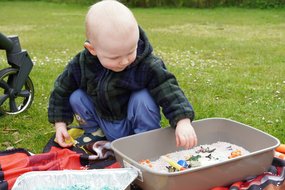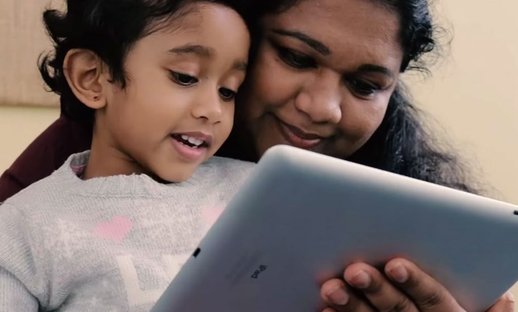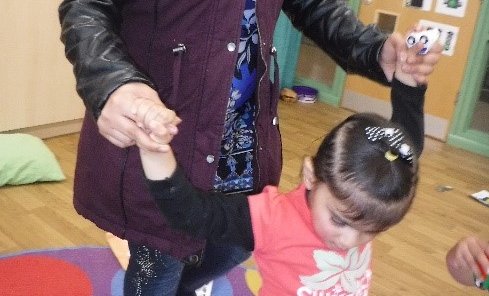
Play is crucial for developing children’s communication and language skills, as well as supporting their learning and wellbeing. Here are 10 reasons why it is so important:
- Play provides endless opportunities for children to hear and explore the power of their voice, and practice using new and familiar sounds and words.
- Play stimulates cognitive development; it supports language development, enhances problem-solving skills and encourages creativity.
- Play unlocks opportunities for children to practice their home language(s) and encounter new words.
- Play removes barriers, it is inclusive and accessible to all. All forms of communication support play; including facial expression, body language, signing, touch, eye contact and speech.
- Play supports a variety of skills, physical, gross and fine motor, which will also support writing. Active play promotes muscle development, develops imagination, communication skills, and helps coordination and overall health.
- Play enables children to practice, revisit and embed deeper learning through experimentation and repetition.
- Play facilitates natural curiosity, enabling children to make connections, understand what is seen, heard, and experienced in their world.
- Play enables children to develop independence, perseverance and turn taking skills, supporting them to negotiate and build relationships.
- Play provides a safe space for children to explore and learn to manage their feelings, helping them to build resilience and develop empathy towards others.
- Play fosters a love for learning, develops imagination, and helps children grasp concepts in a fun and engaging way.
Playday 2025
Playday provides the perfect opportunity to reflect on the importance of play, and review how you support and enable high quality play in your setting or classroom.
In 2025 Playday will be celebrated on Wednesday 6 August.
With so much to fit into your daily routine it can be hard to prioritise play. Children’s learning is optimal when they are engaged in self-chosen, self-directed and satisfying play. Our posters will help to make sure play remains an important part of your curriculum.
Celebrate Playday by presenting new play opportunities to the children in your care. You can also use it as an opportunity to share the importance of play with parents.
Scroll down to download our play posters; print and display them to remind your colleagues in early years and Key Stage 1 how important play is for their children’s development.
Once you’ve downloaded the posters, take a look at our blog, the power of play to boost early language, written by our Head of Early Years, Tracy Jackson.
More resources for young children
Download files
You might also be interested in
-
Premium
Technology can play a useful role in supporting early communication, language and literacy.View details about Digital technology and the early years -
Free
We have produced a series of bi-lingual quick tips for parents and practitioners to help children develop good talking and listening skills. These tips are available in English and...View details about English and Arabic bilingual quick tips -
Free
Representatives from St Edmund's Nursery School and Children's Centre in Bradford put together this case study to evaluate the changes for one family following five Early...View details about Early Words Together evaluation case study - St Edmund's Nursery, Bradford

